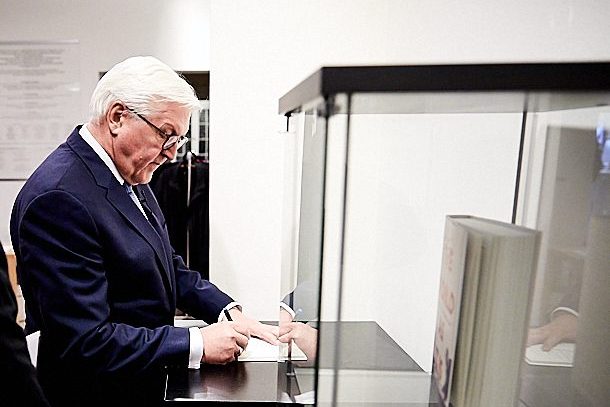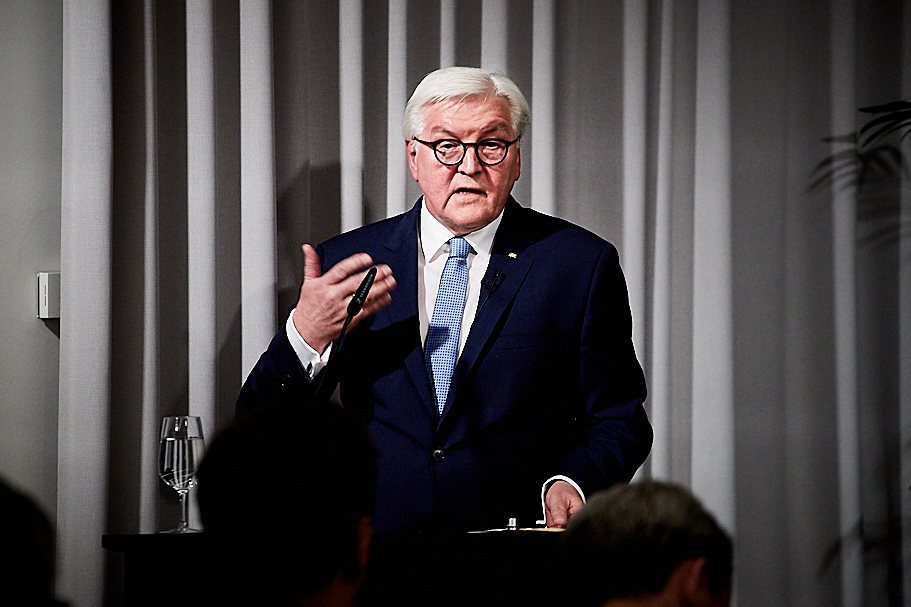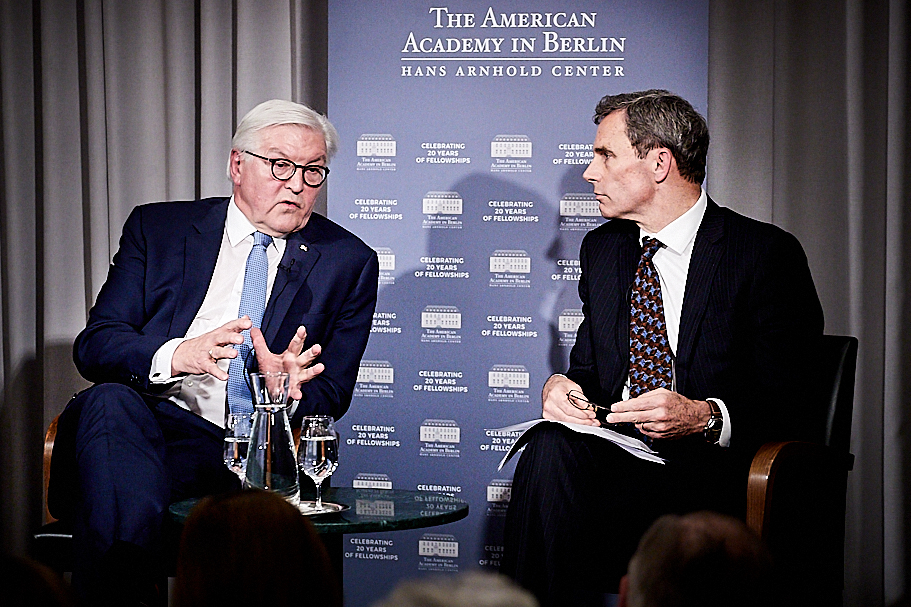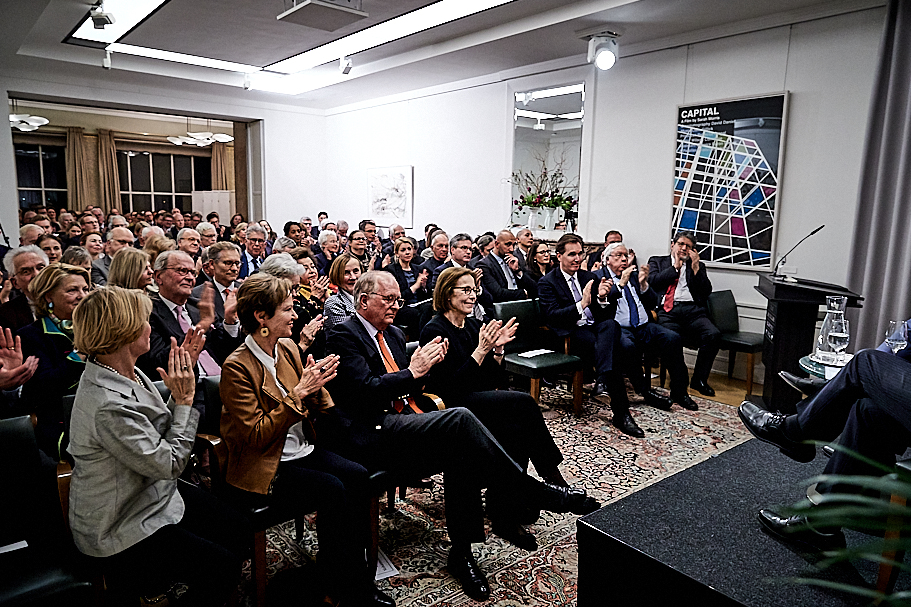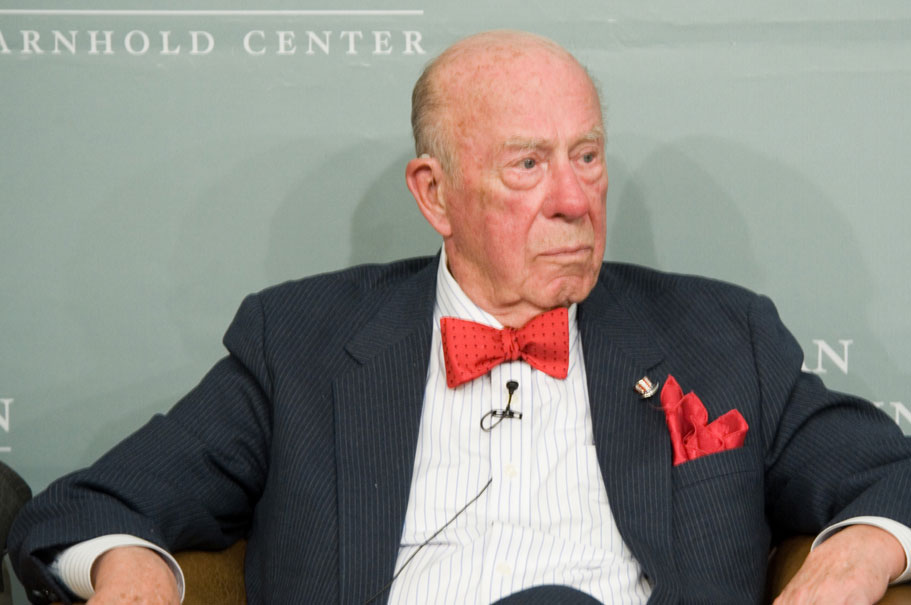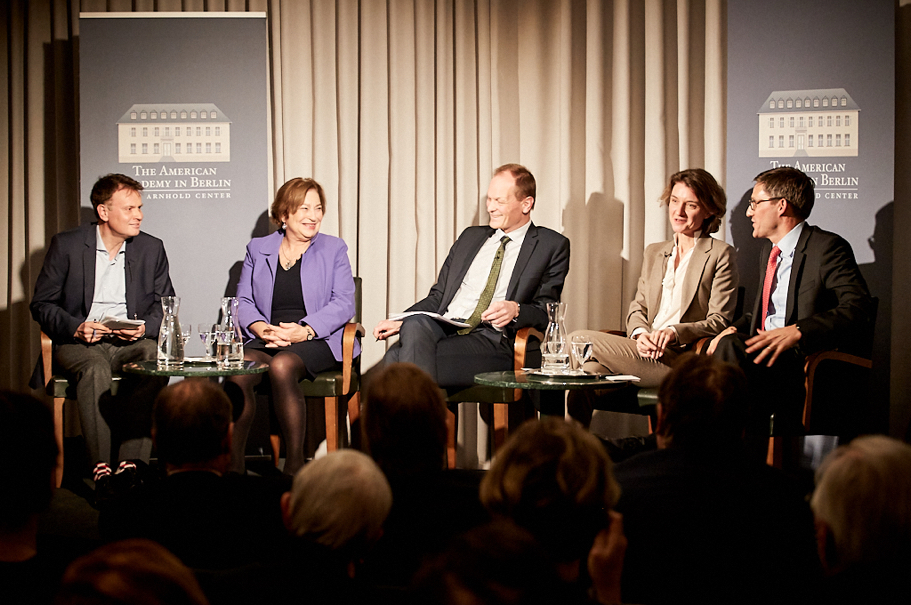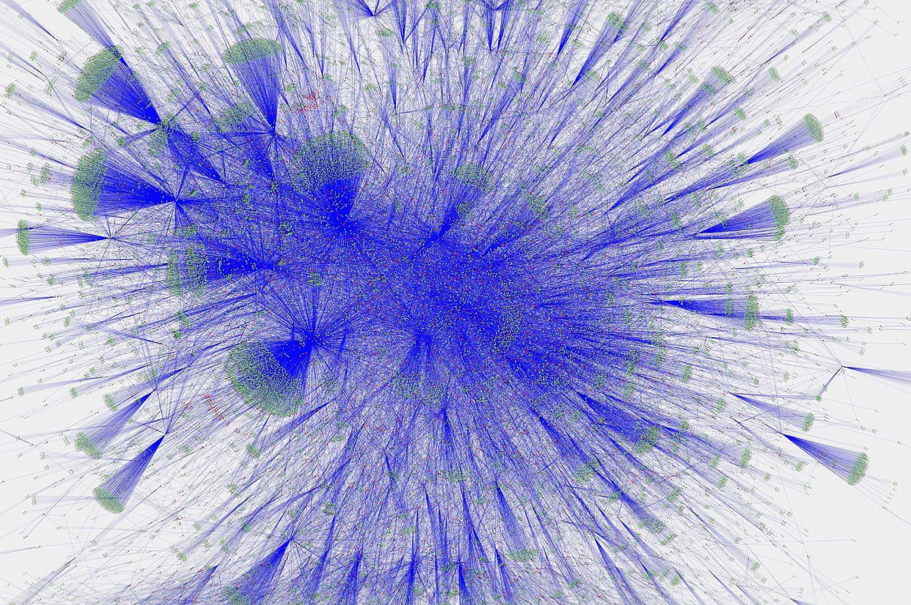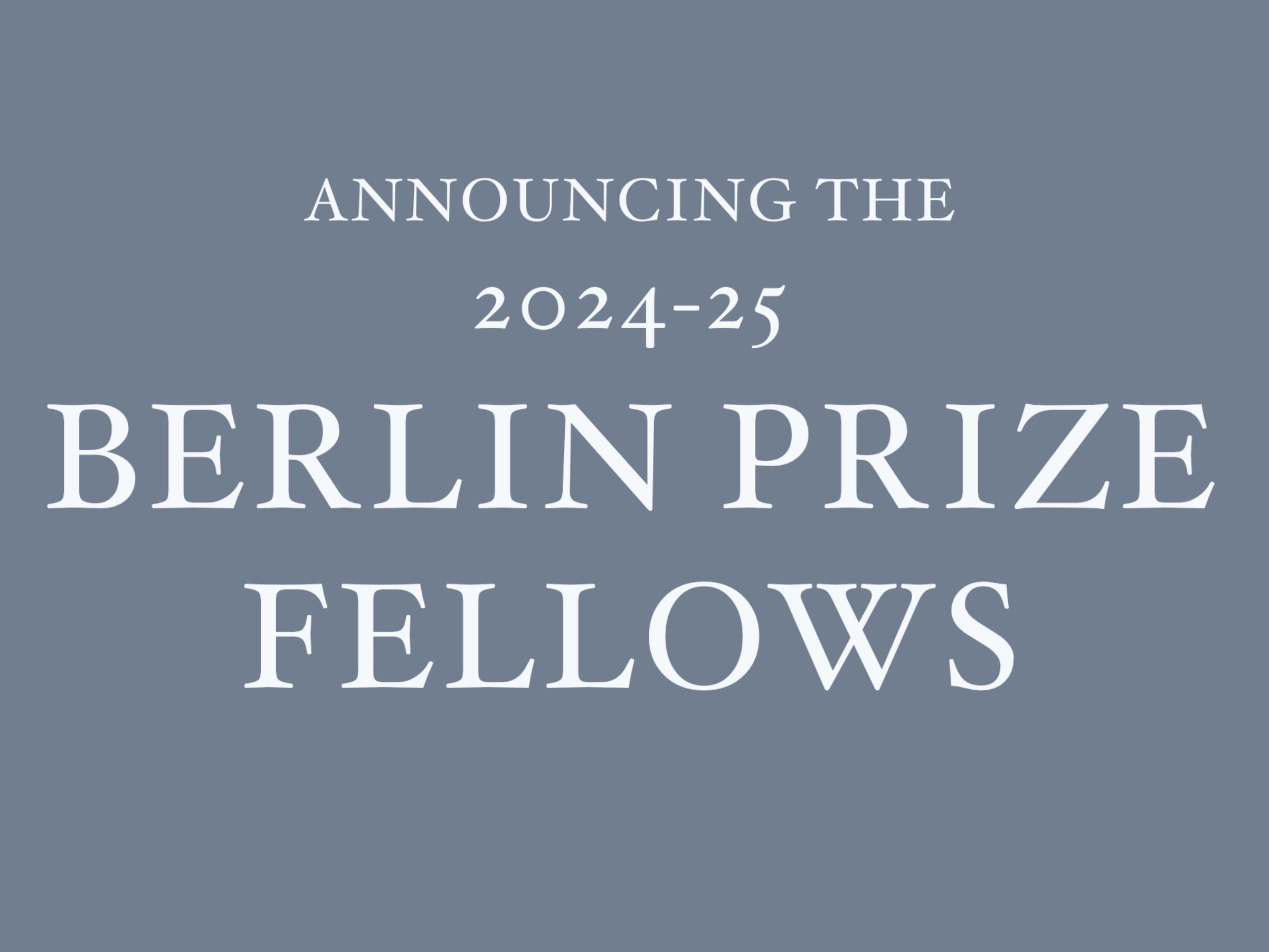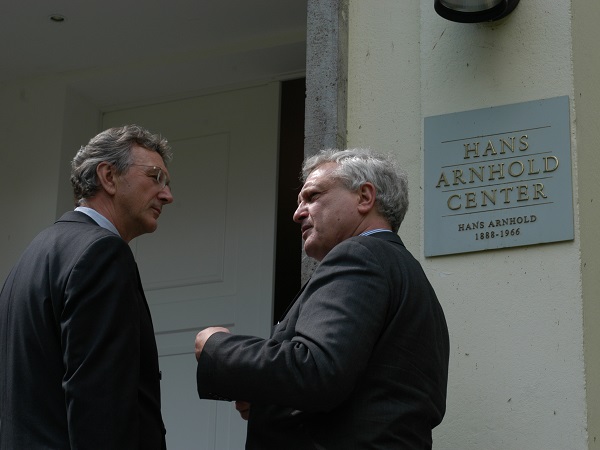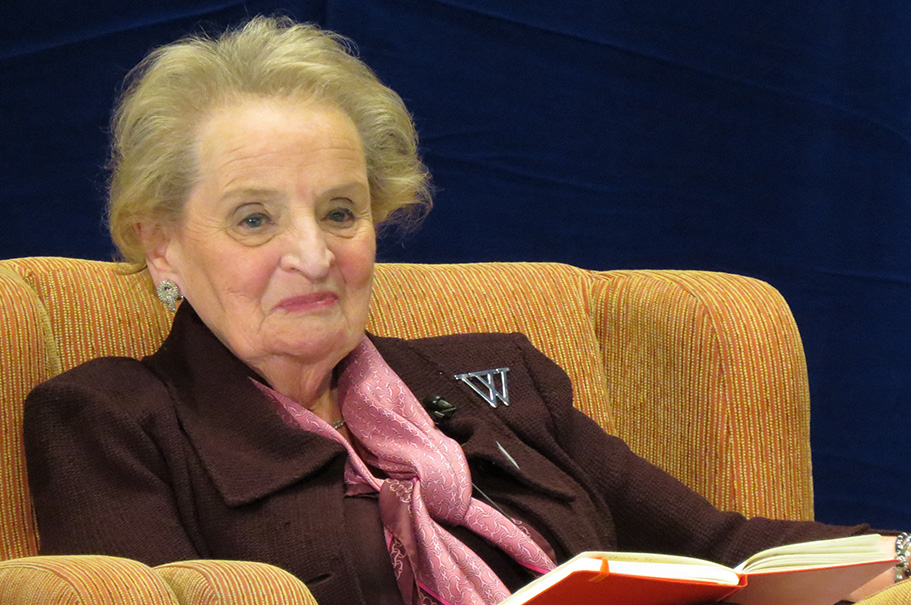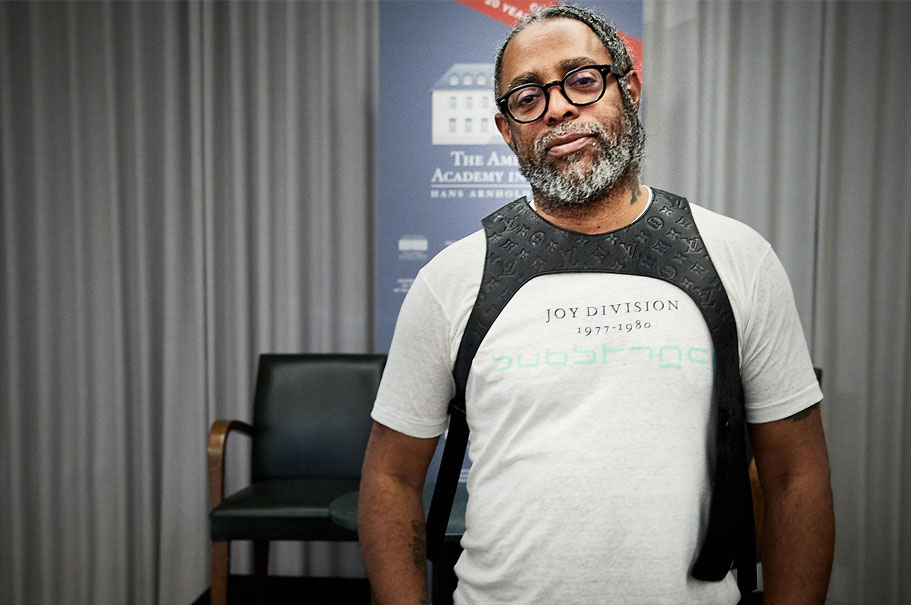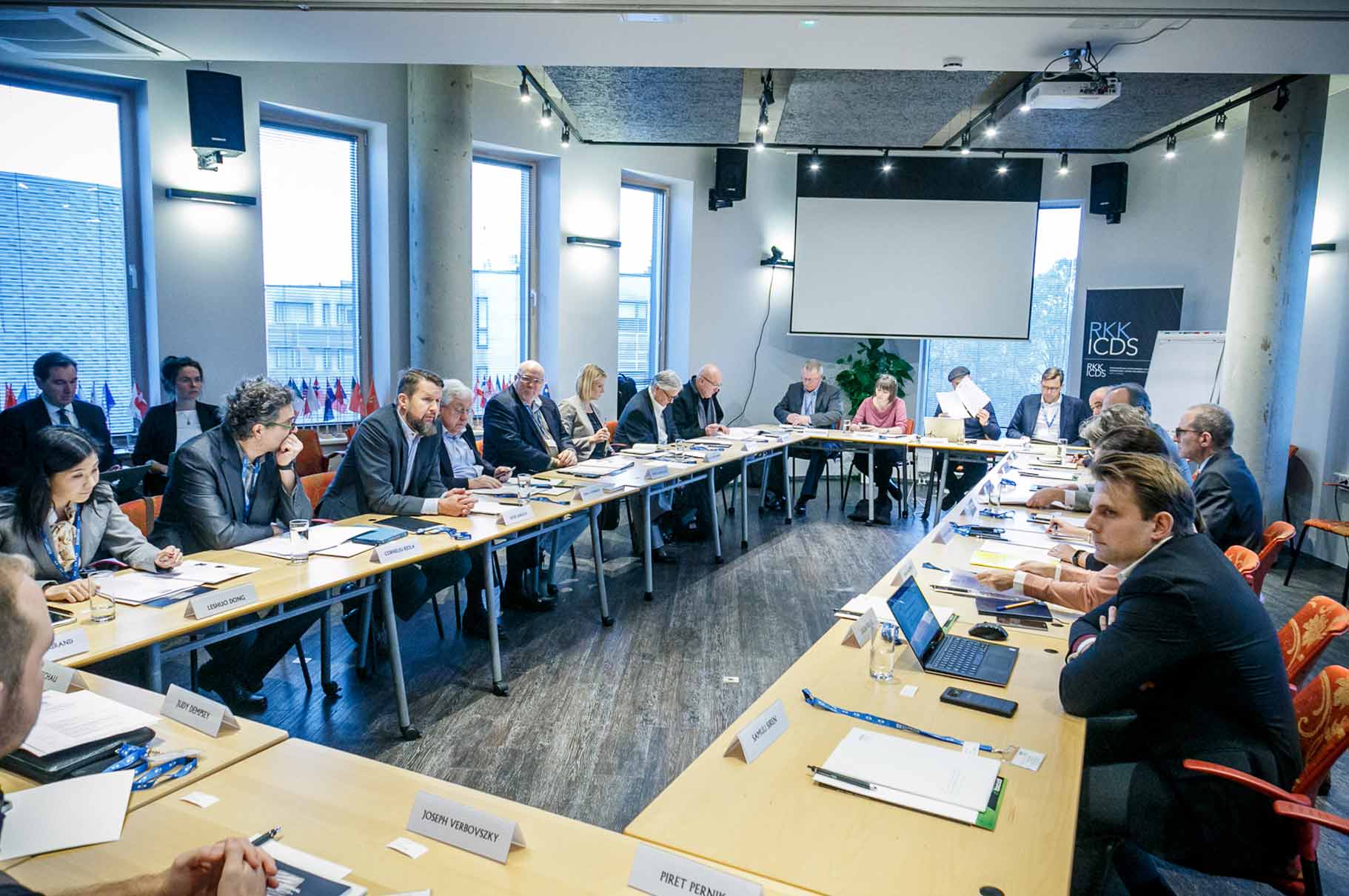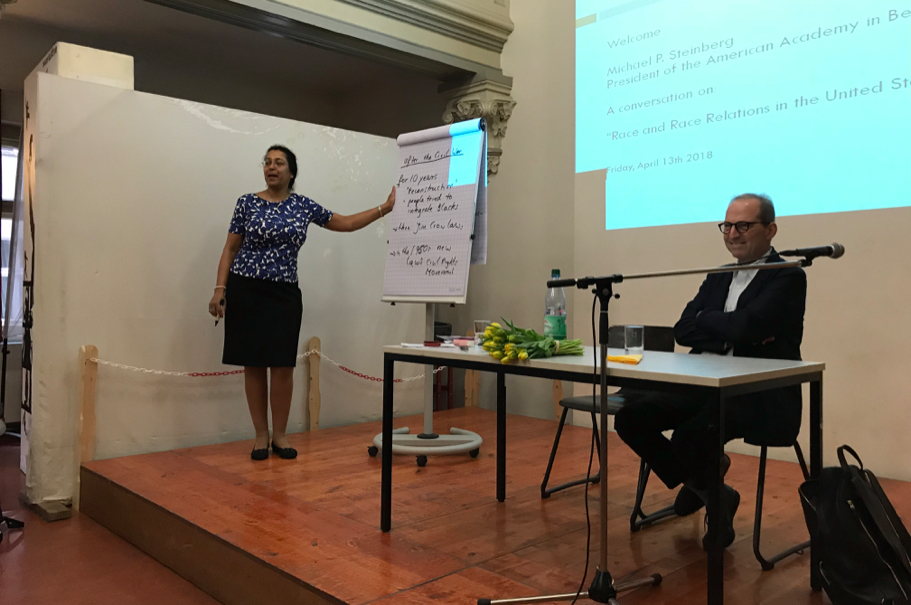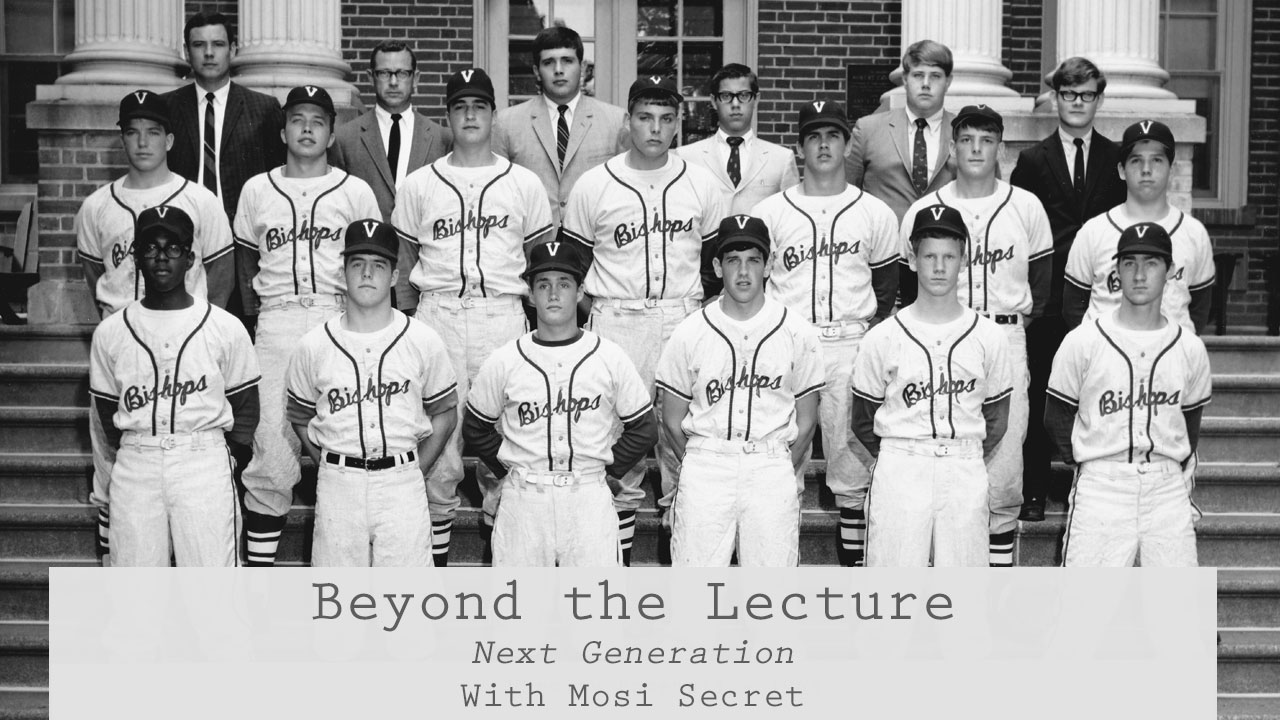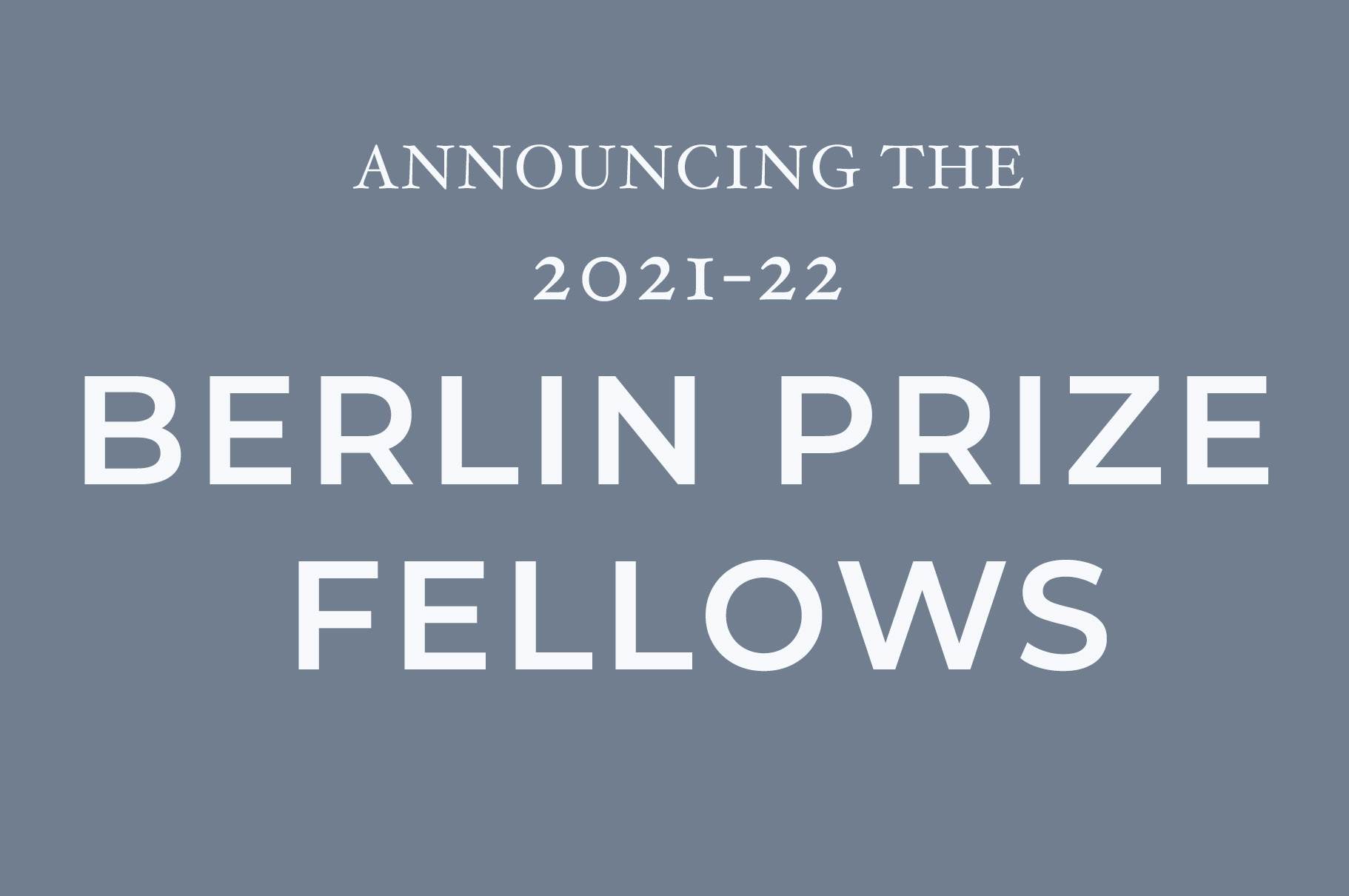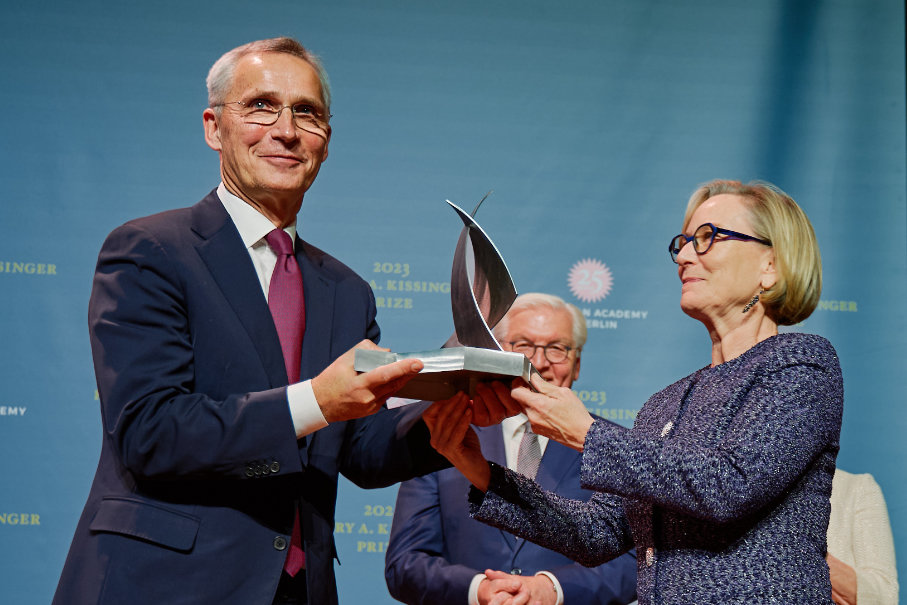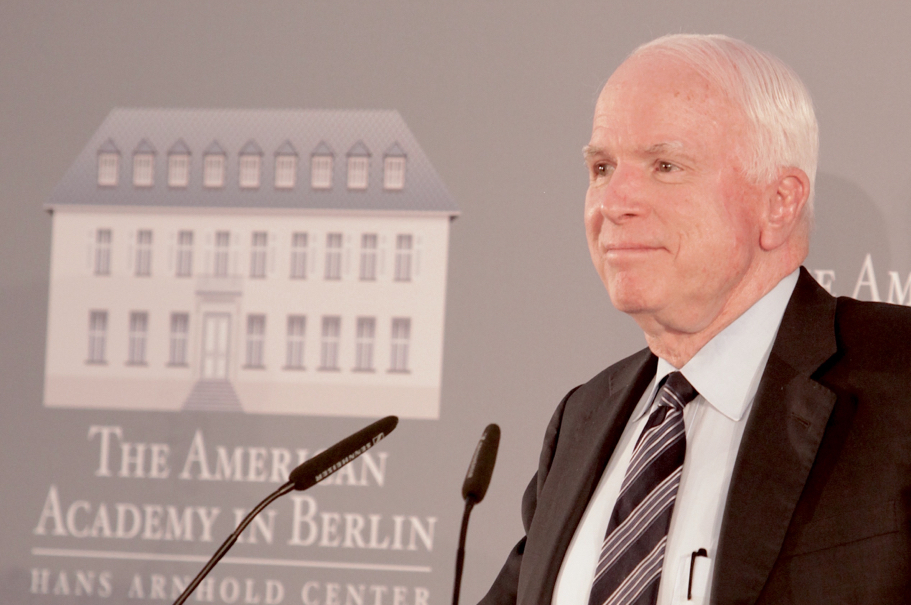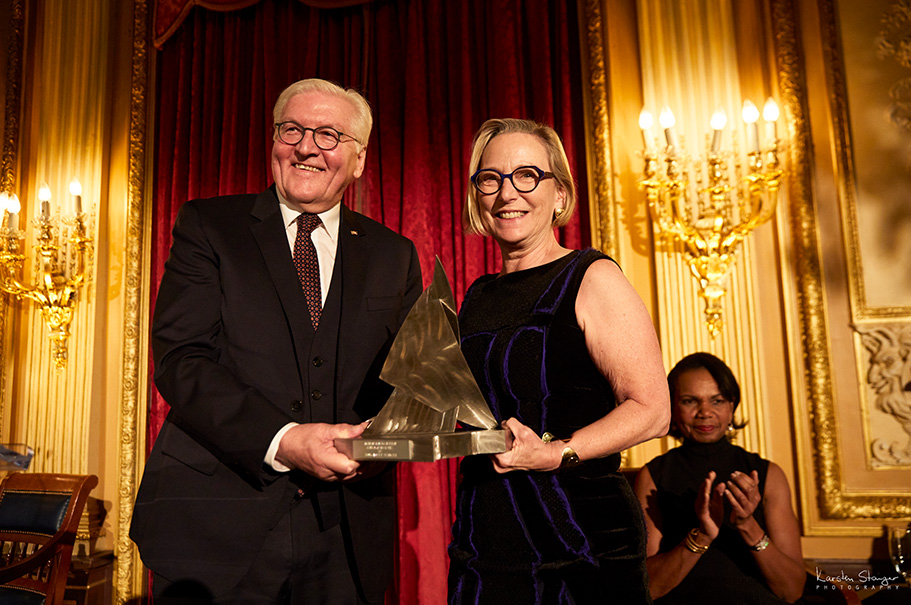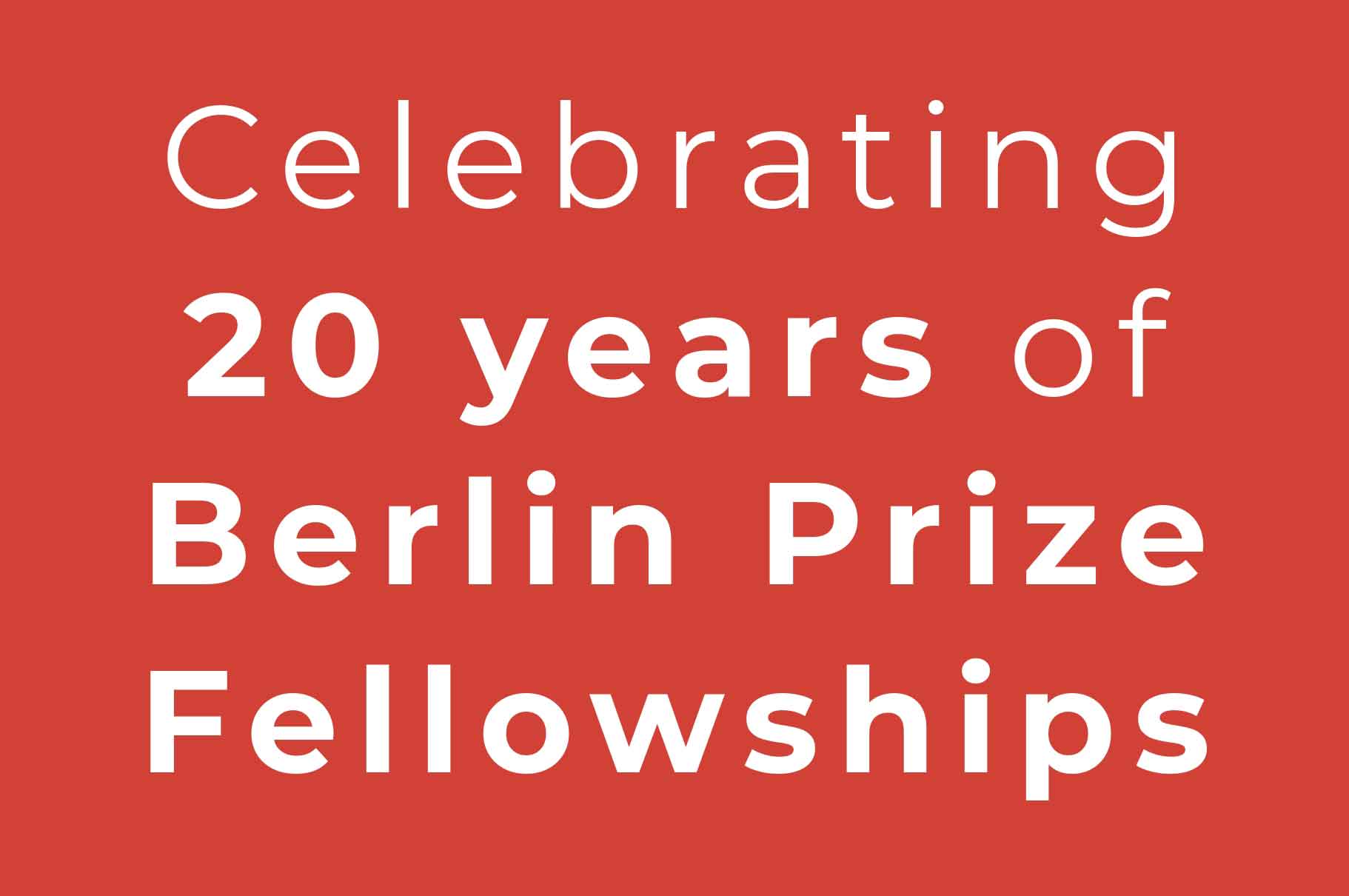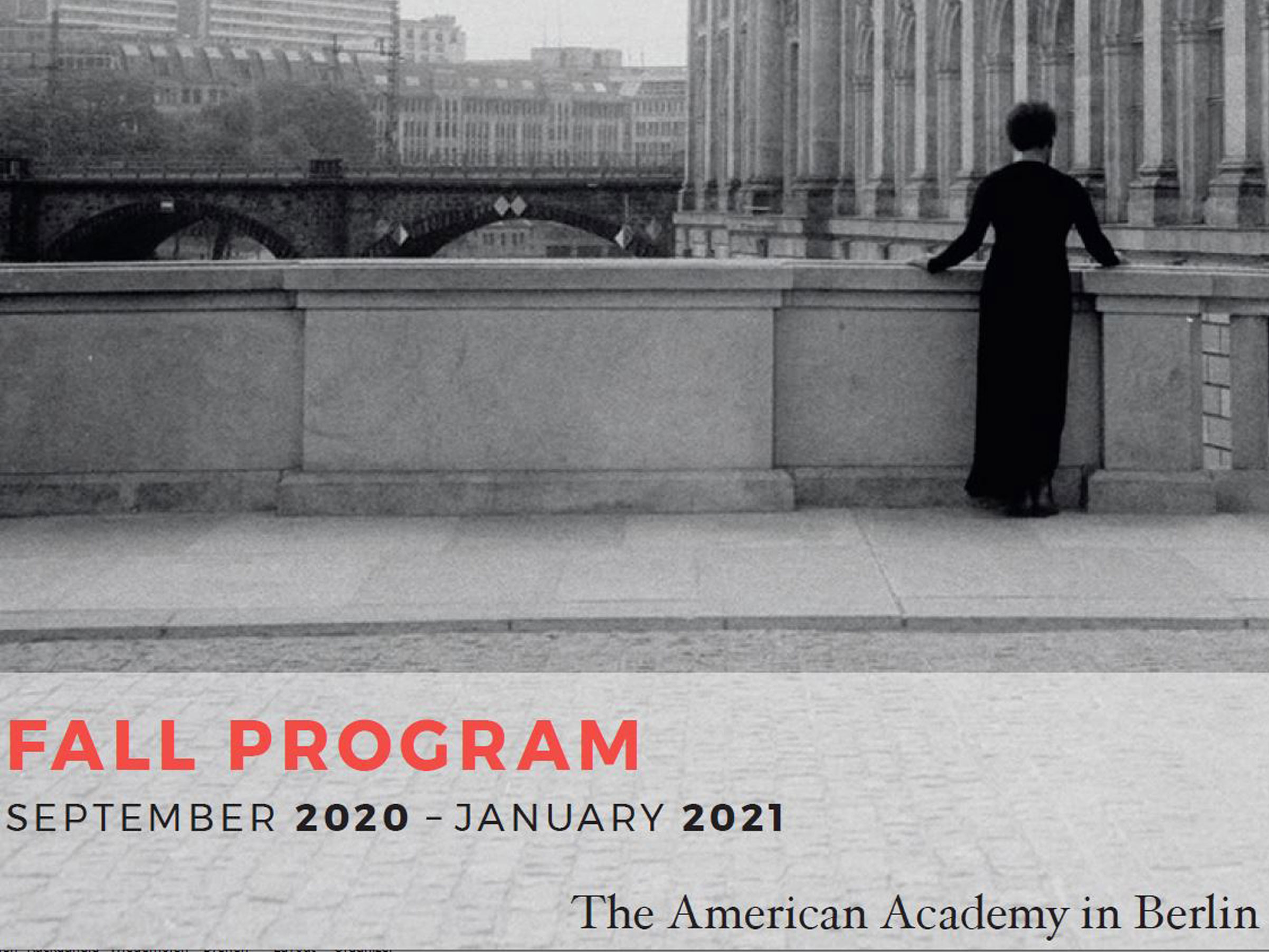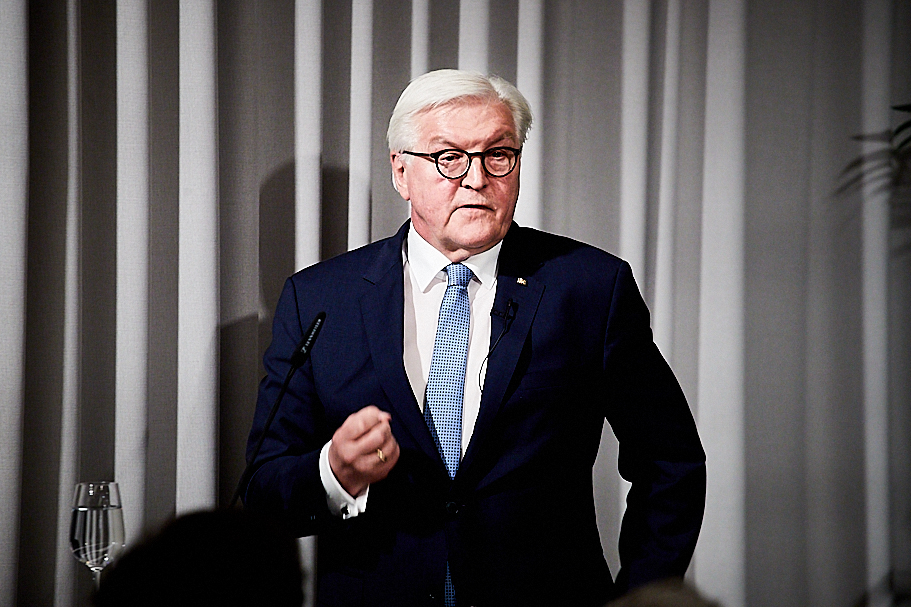
President Steinmeier Delivers the 2019 Fritz Stern Lecture
German Bundespräsident Frank-Walter Steinmeier delivered a stirring speech in defense of democracy and the power of reason on Tuesday, March 5, at the American Academy in Berlin, and criticized a growing tendency in some quarters towards authoritarianism.
At the Academy’s 2019 Fritz Stern Lecture (available at the Bundespräsidialamt in English), President Steinmeier said that Germany’s widespread optimism when the Wall fell, and the attendant hopes that people would come together under democratic rule, were now starting to disappear. He warned: “A new fascination with authoritarianism is becoming widespread.”
The noted German-American historian Fritz Stern—one of the founding trustees of the American Academy—had argued in his book The Politics of Cultural Despair (1961) that once Germans in the 1920s and ’30s began to give up on reason and to glorify force, there was an almost inevitable progression toward the horrors we now associate with the Third Reich. Steinmeier said of Stern, “His passionate appeal for a policy of reason was underpinned by a deeply held conviction that democracy and freedom themselves were also at stake with the loss of reason.” Turning to today, Steinmeier said, “We can be forgiven for saying that reason is not exactly in vogue. Moreover, democracy is also under pressure.”
Why, asked Steinmeier, do we see reason being jettisoned as people angrily seek scapegoats for their personal grievances? In an increasingly globalized world, it is becoming more and more difficult to persuade people to make compromises without feeling that they are giving up their vital interests: “We need people to understand that it is not a matter of all or nothing, but rather of striking a balance between conflicting interests.”
This reasoned approach is made all the more challenging by what Steinmeier called the “heckling, hatred, and harshness” of public discourse on social media. “So-called internet trolls who spread misinformation on behalf of foreign governments, or automated ‘social bots’ programmed to influence public opinion, are the exact opposite of the openness that the pioneers of the World Wide Web had hoped to achieve…. They disrupt public democratic discourse.”
Referring to the growing nationalist sentiment that has spread across Europe and the United States, the German president was quick to acknowledge that “a feeling of home” is vital for humans. In fact, he said the need to belong has become heightened by the erosion of borders and the internationalization of life. “But when such feelings retreat into isolation, exclusion, and rejection of others, and in particular when they retreat into fear of the future and the notion of an imagined and supposedly glorious past, then they become dangerous.”
Steinmeier noted that this type of nationalist thinking, which Germany experienced so disastrously in the last century, held that the time for talking was over. Its critics were seen as representatives of a “hostile system,”—and “then there remains only one’s own truth and other peoples’ lies. … I would call that a denial of dialogue.” That is precisely the disdain for reason that Fritz Stern had warned of.
Steinmeier brought up a recent discussion he had with former US Secretary of State George Shultz at Stanford, in which Shultz surprised many of the younger people in the room by saying that new technologies needed to be examined to see if they facilitated democracy. “Many who were present at the discussion,” Steinmeier said, “held the view that deliberative democracy as we know it is too slow and cumbersome—like a Galapagos tortoise.” But we should never lose patience with democracy, “for though it may be slow and deliberative—it is also a sustainable form of government, perhaps the only one, that both enables and protects freedom.”
Asked by a member of the audience about whether his idealistic vision of democracy collided with the realities of the world, Steinmeier said that one cannot expect unanimity: “Democracy means that one has to allow for the ability to be wrong, to be fallible.” He pointed to the political movements in Italy in France that were stressing the need of grassroots involvement in democracy. He concluded, to a strong round of applause: “There is not a liberal or an illiberal democracy. Democracy is liberal, or it is not a democracy.”
– Terry McCarthy


